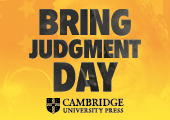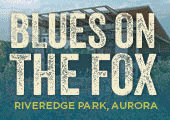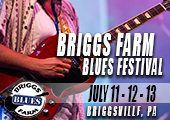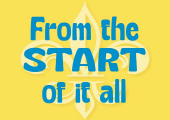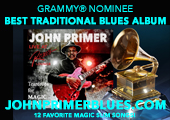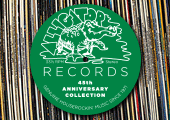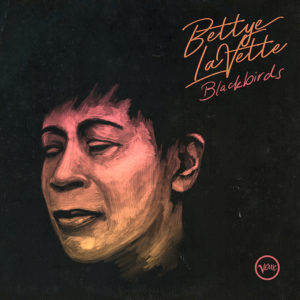 BETTYE LAVETTE
BETTYE LAVETTE
Blackbirds
Verve – B0031706-02
Bettye LaVette considers the creative success and widespread recognition she has achieved in recent years her “fifth career.” After so many stops and starts, she stands on an artistic peak and maintains her stunning creative momentum with Blackbirds. She may have pursued hit singles (and scored some) in her early years as a recording artist, but in the current high-flying phase of her six decades in the music business, LaVette is very much an album-oriented artist, often focusing on thematically unified material, including I’ve Got My Own Hell to Raise (2005)—songs written by women; Interpretations: The British Rock Songbook (2010); and Things Have Changed (2018)—songs by Bob Dylan. This latest release, according to David Freeland’s liner notes, “is conceived as a dialogue with some of the great African American female singers of the 1950s.” Seven of the nine tracks are drawn from songs associated with the repertoires of Billie Holiday, Della Reese, Dinah Washington, Ruth Brown, Nina Simone, Lil Green, and Nancy Wilson. LaVette includes one recent composition, One More Song, from singer and composer Sharon Robinson, who is perhaps best known for her simpatico collaborations with Leonard Cohen. The closing track, Paul McCartney’s Blackbird, is transformed into a first-person reflection on the singer’s creative vision and functions as a declaration of personal artistic freedom and her homage to the Black women singers who graced the stage before her.
In addition to the thematic unity, the nine tracks that make up Blackbirds feature a distinctive bluesy sound and intimate ambience thanks to the support of a first-rate quartet made up of drummer (and producer) Steve Jordan, guitarist Smokey Hormel, keyboardist Leon Pendarvis, and bassist Tom Barney. Vibraphonist Monte Croft and a string quartet comprised of Nioka Workman, Charissa Rouse, Ina Paris, and Rose Bartu bring some really effective accents to a few tracks. I Hold No Grudge, associated with Simone, is given an early 1970s, slow-pulsing, Stax funk treatment. LaVette sings Robinson’s One More Song with a haunting poignancy, her voice caressed by the interplay of Pendarvis’ acoustic piano and Croft’s vibes. Blues for Weepers, inspired by Reese, has a churning funk groove as LaVette reflects on the relationship of the singer to the audience. She delivers Green’s In the Dark with a wry self-confidence. On Drinking Again, LaVette salutes Washington with a jazzy reading that conjures up a vision of a closing time in a late-night club. LaVette’s extensive Broadway musical experience provides her with the tools to dramatize a song, to inhabit her material and breathe new life into it. She brings those skills to bear on Holiday’s signature tune, Strange Fruit—not an easy song to cover effectively. And, unfortunately, it is still all too relevant given the social climate in the United States today. Save Your Love for Me, a showcase for Wilson, provides LaVette a forum to stretch out and deliver a slow, blues-drenched jazz interpretation. She concludes the program with the lovely string-enhanced version of the McCartney tune declaring, “I took my broken wings and I taught my own self how to fly / All of my life I have waited for this moment to arrive.” Blackbirds is a triumphant celebration of Bettye LaVette’s achievement and the women who paved the way for her to arrive.
— Robert H. Cataliotti
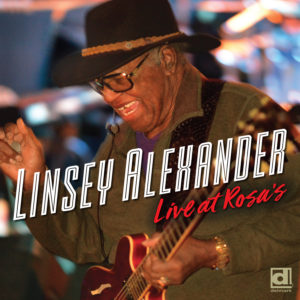 LINSEY ALEXANDER
LINSEY ALEXANDER
Live at Rosa’s
Delmark – DE-862
Chicagoan Linsey Alexander offers up an eclectic set, recorded in performance at Rosa’s Lounge, on the city’s northwest side, in May of 2019.
Of the nine tunes on offer, Alexander wrote five: the hard-charging My Days Are So Long (set to a groove that sounds borrowed from Denise LaSalle’s I’m Still the Queen), which he spices up with some fluid, Albert King–like string-bending; the boogie-shuffle I Got a Woman (no relation to the Ray Charles standard); Goin’ Out Walkin’ (somewhat reminiscent of Muddy Waters’ Walking Thru the Park, although without that song’s trademark rhumba intro); Snowing in Chicago, a minor-key offering that manages to sound both brooding and celebratory at the same time; and Going Back to My Old Time Used to Be, a funk-boogie rocker propelled admirably by bassist Ron Simmons and drummer Big Ray Stewart, and seasoned by some New Orleans–tinged keyboard work from Roosevelt “Hatter” Purifoy.
Elsewhere, Alexander takes on material by Latimore (Somethin’ ’Bout ’Cha, which he slows down to an easy-rolling ballad groove spiced by a neo-reggae bridge), Junior Wells (an ominously slow-grinding Ships on the Ocean), and both Freddie (Have You Ever Loved a Woman), and B.B. (Please Love Me) King. He delivers it all in a meaty, occasionally rasp-toughened baritone, and his fretwork is straightforward, no-frills club-blues boilerplate—plenty of familiar ideas, but retooled and repurposed to breathe new life into even the most tried-and-true conceits. The blues, after all, isn’t necessarily a music of constant innovation—it’s based on a bedrock of tradition that seems never to lose its freshness as long as musicians bring the requisite amount of fire and emotional commitment to their work. That’s what Linsey Alexander does here, that’s why he’s one of the hardest-working stalwarts on the Chicago circuit, and that’s what his admirers will savor throughout this set.
—David Whiteis
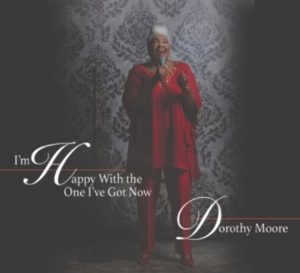 DOROTHY MOORE
DOROTHY MOORE
I’m Happy With the One I’ve Got Now
Farish Street Records – No #
This is Dorothy Moore’s fifth outing on her own Farish Street label, named for Jackson, Mississippi’s legendary nightlife stroll. She’ll turn 75 this year, and her voice has coarsened over time, but that just makes her more convincing than ever on straight-ahead blues such as the title tune. She brings steamy erotic heat to Eddie Floyd’s You Don’t Say No, and she summons a shimmering, youthful-sounding jubilance on the jaunty Everything About Your Lovin’, negotiating melodic ascents and challenging intervals that vocalists half her age might find daunting, and even unfurling some rarely heard scat singing toward the end.
But be not deceived: the woman who helped define bittersweet heartbreak over 40 years ago with Misty Blue remains a matchless balladeer. There Comes a Time mines inspiration from the deepest roots of soul music yet sounds utterly contemporary, as Moore’s delivery encapsulates the kind of hard-won joy that only a life-wizened veteran like her can truly summon; she brings a similar meld of pathos and light to such melancholy masterpieces as I’ll Get By (also by Eddie Floyd), the moody, nightclubby Sad, Sad Sunday, and You Don’t Have to Tell Me, a Jim Weatherly creation of almost ineffable sadness, leavened by a lush, string-washed arrangement, on which Moore stares down heartbreak with a chilling, stoic vulnerability.
Moore, as usual, has surrounded herself with top-flight musicians; so impeccably crafted are the arrangements (by trumpeter Kimble Funchess), and so deft the soloing (tenor saxophonist Dr. Jessie Primer III merits special commendation), that the instrumental tracks would be satisfying on their own.
Dorothy Moore is a living treasure.
—David Whiteis
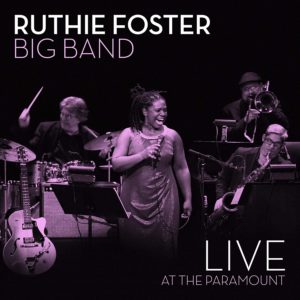 RUTHIE FOSTER BIG BAND
RUTHIE FOSTER BIG BAND
Live at the Paramount
Blue Corn Music – BCM2001
On the night of January 26, 2019, Ruthie Foster took the stage of the iconic Paramount Theater in Austin, Texas, with her big band; while her shows often feature Foster with just her bassist and drummer, on this night she fronted ten horn players, three backing vocalists, a keyboardist, bassist, and drummer, with John Mills, who teaches jazz composition at the University of Texas at Austin, conducting the music. As usual, Foster’s soaring vocals are the star attraction, and she ably moves across a wide musical range, from gospel-inflected soul to lounge jazz to pop standards from the American songbook.
Foster’s daughter introduces her mother to the clamorous audience, and Foster launches almost immediately into the ring-shout Brand New Day, which elevates into a full-blown gospel blues and New Orleans strut. Foster’s powerful vocals elevate this song, and the crowd knows it’s in for a treat. She moves into the soul stirrer that she wrote with William Bell, Might Not Be Right, which alone testifies to Foster’s way with a song; it’s a moving song that illustrates Foster’s ability to slide from quiet vocals to towering soul shouts. She’s long included her version of Johnny Cash’s Ring of Fire in her shows, introducing it by reminding the audience that “this is not your grandfather’s Ring of Fire.” Foster’s is a slow-burning, lush arrangement that owes as much to Muscle Shoals as it does to Nashville; it’s an exquisite experience to hear Foster sing her version. She kicks into high gear with Stone Love, which lifts into the stratosphere after an extended jazz lounge piano introduction. Foster struts along with the jump blues Singin’ the Blues, her joyful paean to the blues, and her propulsive Runaway Soul scampers across the stage, fueled by powerful horns. The gospel-inflected Joy Comes Back rides along a New Orleans groove, with Foster’s joyful vocals floating over the strains of a B3. On the encores, Foster stretches out on two American pop standards, Fly Me to the Moon and Mack the Knife, inhabiting the jazz rhythms of the songs and making them her own.
For anyone who’s never heard Ruthie Foster, Live at the Paramount serves as an ideal introduction. For her fans, the album simply confirms what they’ve always known: Foster dwells in the songs she sings, making them her own and transporting us with her soaring vocals.
—Henry L. Carrigan Jr.
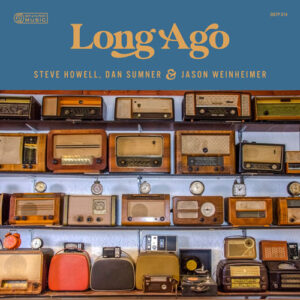 STEVE HOWELL, DAN SUMNER & JASON WEINHEIMER
STEVE HOWELL, DAN SUMNER & JASON WEINHEIMER
Long Ago
Out of the Past Music – 00TP014
Steve Howell has never met a long-forgotten hit or obscure gem that he can’t wrap his soothing, road-worn baritone around. On Long Ago, the Texas acoustic guitar maestro continues to mine the Great American Songbook as only he can.
For his ninth album, Howell teams up with bassist and longtime collaborator Jason Weinheimer and first-call jazz session guitarist Dan Sumner for another excursion into yesteryear. Armed with arch top and flat top guitars and Weinheimer’s subtle and supportive bottom, the trio brings 11 tunes inflected with jazz, blues, R&B, and rock to life.
Howell goes to great lengths to select songs that not only have great melodies and lyrics, but also ones that he feels have some historical significance worth exploring. As always, Howell includes detailed liner notes on each song and delivers remarkable skill and depth to his playing, while Sumner adds another dimension of acoustic wizardry.
Howell and Sumner’s deep, resonant guitars breathe life into the lilting pace of album opener, Singin’ the Blues, a song that was inducted into the Grammy Hall of Fame and was first recorded by vocalist Aileen Stanley in 1920. The contemplative Angel Eyes was popularized by the legendary Ella Fitzgerald, and Frank Sinatra also put it on vinyl. Howell and company give the song a nice little romp, fitting for a song about enjoying the best in life: “Have fun you happy people / ’cause the drink and the laugh are on me,” Howell whispers.
Songs like Do Nothing ’Til You Hear from Me, a forgotten 1940s instrumental hit for Duke Ellington; Song for My Father, a 1964 Horace Silver tune recorded by dozens of artists over the years; and Johnny Mercer’s beautiful I Thought About You benefit from the trio’s light touch and Howell’s heartfelt vocal delivery.
Sinatra and Brazilian composer Antônio Carlos Jobim recorded the best-known version of the bossa nova standard Dindi in 1967, but here it is presented as a sweet, jazzy instrumental. Nothin’ but the Blues, an Ellington song that was recorded by heavy hitters like Ella, Sarah Vaughan, and Joe Williams, feels fresh and relevant even though it dates back to 1937. The guys even take a swing at Bei Mir Bist Du Schoen—German for “To Me You’re Beautiful”—with the spirited guitarwork and a delightful, upbeat tempo obscuring the fact it was written for a 1932 Yiddish comedy.
The whimsical Z’s, written by Dave Frishberg, who wrote the now-famous ditty I’m Just a Bill for the’70s kids’ TV short series Schoolhouse Rock, shows that the trio can turn any song into a hip jazz tune.
Searching for some entrancing, relaxing listening in these turbulent times? Long Ago offers the perfect recipe.
—Rod Evans
 ZAKIYA HOOKER
ZAKIYA HOOKER
Legacy
Boogie with the Hook Records – No #
With Legacy, Zakiya Hooker steps out of the shadow of her father, John Lee Hooker, and establishes her own musical identity. She most certainly had to come to terms with the legacy bequeathed to her, and her last album, In the Mood (2015), with its titular nod to one of her father’s iconic tracks, featured the singer moving through various genres, including soul blues, funk, jazz, and country blues. This time around, taking charge as executive producer and composer of all the tracks, she has crafted a seductive program of soul blues numbers that owe more to the gospel-tinged funky soul of the classic Stax Records sound than to her father’s primal boogie.
Hooker is an alluring vocalist who delivers her lyrics with warm melodicism and honey-brushed sensuality. The opening track, Front Door to Hell, features Hooker riding on a mid-tempo rocking groove and sparring with a vocal chorus. The swinging, take-it-to-church organ on Beautiful Eyes provides Hooker with a perfect underpinning to deliver the lyrics with an understated passion. Love the Pain Away is a ballad with a lilting Latin groove that allows Hooker to evoke the early 1970s Aretha Franklin. Even though she clearly has committed to the soul blues genre, she finds room for versatility as a vocalist as evidenced by three tracks: the bluesy percolating funk of Love to the Rescue, echoing early 1970s Isaac Hayes; the pedal steel guitar–driven One More Dance, which sits on the borderline between country and R&B that singers like Percy Sledge and Solomon Burke explored so effectively; and What Am I Gonna Do, a rollicking blues shuffle that brings to mind the groove of Gloria Hardiman’s Meet Me With Your Black Drawers On. With her alluring vocals on a solid set of originals, Zakiya Hooker is letting the blues world know that she is creating her own Legacy.
— Robert H. Cataliotti
 JOICE WALTON
JOICE WALTON
My Perfect Storm
Pinnacle Records – PR0016
As we face an impending future of long nights at home, pop this album into your player, top off your glass of wine, embrace your honey, and float away. Most of these songs are quiet lounge tunes; mellow and aptly handled by Walton with an excellent cast of backup performers, especially Walter John Bankovitch (who also produced this album) on piano.
Walton, currently based in San Jose, grew up on a Texas farm in a town with a population of less than 50, eight of them her siblings. By age 12, she’d formed a trio with her twin cousins, performing at high school pep rallies and retirement homes. From those humble beginnings, she’s gone on to perform in France, Belgium, Holland, and Switzerland.
On this recording, she shares jazz and R&B, with a little blues. She mixes six numbers she co-wrote with classics in a languorous style, largely employing Bankovitch, Jeff Chambers, or Marcus Shelby on upright bass, and Mark Lee on drums.
Walton opens with the familiar tune Crazy He Calls Me, first released by Billie Holiday in 1949, with the memorable line, “Like the wind that shakes the bough he moves me with a smile.” Many others, including the title song, My Perfect Storm, with Tony Baker performing well on guitar, have this calm, dreamy attitude. Be Anything, But Darling Be Mine, notably covered by Sarah Vaughan, has a line any of us would love to hear: “If you love me, everything’s OK.”
Estate (Astarte in Italian) is an ode to summer. Walton smoothly handles it in English then switches to Italian halfway through.
Chickens Come Home to Roost is a 12-bar blues with a jazz-flavored harmony accentuated by a Baker/Calvin Keys guitar duet. Its staccato beat is a departure for this CD. Walton’s street lyrics hit hard. She’s giving the boot to some guy who’s “been busted” for “runnin’ round, gettin’ down with some mother-pluckin’ chick way ’cross town.”
In the liner notes, Walton describes her lyrics as “straight from my heart—this by way of experience of falling in love, love lost, and well . . . looking back with a little pay back, all with the anticipation of exciting new adventures.” Walton invites you to join her.
—Robert Feuer
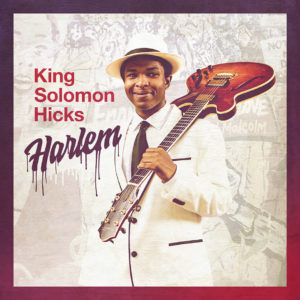 KING SOLOMON HICKS
KING SOLOMON HICKS
Harlem
Provogue – PRD 75612
Opening with Leon Russell’s I’d Rather Be Blind underscores the point that King Solomon Hicks is no blues purist. His reading of the song—first cut by Freddie King in 1972 on his Russell-produced Texas Cannonball—owes a debt to the kind of blues played by the Mad Dogs and Englishmen aggregation. And Hicks’ cover of the blues chestnut Every Day I Have the Blues suggests the manner in which Derek & the Dominos might have played it.
The lyrics of the dramatic What the Devil Loves may be preachy, and Hicks renders the tune in a gospel-blues style, but his light touch means that the song never feels overwrought. And its chorus may just move the listener to sing along.
Hicks isn’t a prolific artist; in a decade he’s only released three albums. And only two of the 11 cuts on Harlem feature a Hicks co-writing credit. But his infectious 421 South Main is an instrumental guitar workout that strongly evokes Freddie King’s best. And when he shifts gears into a jazz-blues bag for Al Kooper’s I Love You More Than You’ll Ever Know, he does so credibly. Hicks’ three guitar parts on the track are a study in contrasts: there’s a tantalizingly brief introduction in a Wes Montgomery–style; an impassioned fuzztone-laden lead that subtly reinforces the song’s emotional content; and some gentle, barely audible rhythm work.
But then the CD shifts gears slightly uncomfortably. Going from Kooper’s love song to the don’t-want-to-see-you-again sentiments of Headed Back to Memphis may not be an example of inspired track sequencing, but the latter’s instrumental work is appealing.
A horn-heavy deep funk instrumental reading of Gary Wright’s Love Is Alive takes the song in a direction radically different from its original all-synthesizers arrangement on Wright’s 1975 LP The Dream Weaver. Hicks scores points for inventiveness here; venturing far beyond the blues, he nonetheless pulls the material back in that direction.
Have Mercy on Me is one of two Harlem tracks written by Frankie Vinci. Vinci’s tunes make little pretense of being blues numbers. But once again Hicks and his sidemen bend the material to their will, infusing it with enough blues to satisfy the faithful and enough pop to appeal to a wider audience.
Hicks’ second co-write on the album is Riverside Drive, a slow blues that recalls Peter Green–era Fleetwood Mac as much as anything else. The manner in which the song fades out suggests that the band kept on playing. But while It’s Alright has its charms (including Hicks’ dependably fiery guitar work), in the end it evokes memories of ’70s power blooze à la Foghat, Bad Company, and the like. Happily, Harlem ends on a powerful note with a heartfelt cover of Willie Dixon’s Help Me.
For listeners who find blues too bluesy, King Solomon Hicks’ Harlem could serve as a friendly entry point into the genre. An album that occasionally seems designed to play to the widest possible audience, Harlem still manages to avoid too many missteps, resulting in a solid collection of songs.
—Bill Kopp
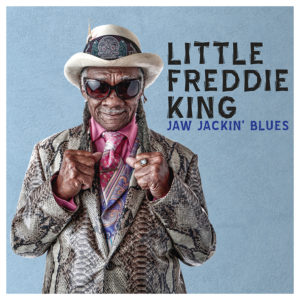 LITTLE FREDDIE KING
LITTLE FREDDIE KING
Jaw Jackin’ Blues
Made Wright Records – 75
Listeners to Little Freddie King’s Jaw Jackin’ Blues had better turn up the volume, strap on their seat belts, and get ready for one wild ride. The music is very much grounded in King’s raucous, rocking-the-house approach to the blues, but drummer and producer “Wacko” Wade Wright has blasted the veteran guitarist and singer into the 21st century with the help of Detroit remix artist Tino Gross and former Mary J. Blige backup singer Kymberli Wright. The album’s title refers to King’s penchant for and unique skills at telling stories, especially his adventures on the wild side among what Allen Toussaint so appropriately called “night people.” At age 80, he’s definitely a survivor, and this recording shows he’s still game to try anything.
Many of the tracks employ snatches from King’s storytelling that are looped over pulsing electronic beats and wailing background vocals. It could be called gutbucket house music. Sonically, the concept is similar to what Fat Possum Records did on the R.L. Burnside album Come on In (1998) with tracks like It’s Bad You Know and Shuck Dub. Titles such as Mixed Bucket of Blood, Upside His Coconut, Crack Ho Flo, and Half Gallon of Vodka signal the kind of trip on which King and Wright are taking listeners. One of the standouts is Bollywood Freddie with its looped narrative segments, live audience hand claps, and a repeated instrumental line on an oud-like string instrument. In addition to his walk-on-the-wild-side storytelling mashups, they’ve put together some similar tracks with beats and treatments surrounding King’s guitar playing, including the acoustic guitar/slide guitar duel on the country and western–meets–Hawaii outing Unleashed Da Dogs and the crunching electric guitar riding over DJ scratching and thundering bass and drums on Dig Me Part 2. Jaw Jackin’ Blues concludes with a live track, the roiling Bo Didley beat–inspired Trip to Detroit, featuring King’s guitar with Tino Gross and the Howling Diablos, proving that this blues man doesn’t really need any studio wizardry to set off a sonic boom.
— Robert H. Cataliotti
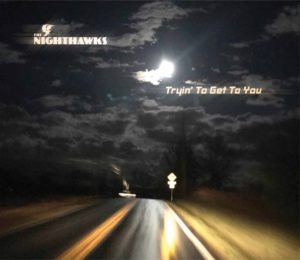 THE NIGHTHAWKS
THE NIGHTHAWKS
Tryin’ to Get to You
EllerSoul – ER 20202
The Nighthawks are legendary in Washington, DC, though no monument to them has been built yet. Harmonicat Mark Wenner founded the group in 1972 and still presides. The rest of the original band has moved on. Drummer Mark Stutso joined ten years ago, with recent additions being Paul Pisciotta on bass and Dan Hovey providing standout performances on guitar. Along the way the band picked up a BMA for Acoustic Album of the Year in 2011.
Tryin’ to Get to You is the Nighthawks’ 31st release. Wenner’s harp is prominent on every song. He handles many of the lead vocals but the other three also do a lot of singing. The mix of styles keeps this album interesting.
Several of the CD’s 13 songs have a medium-paced 1940s–50s R&B feel. Choice among these are T-Bone Walker’s I Know Your Wig Is Gone and James Brown’s Tell Me What I Did Wrong.
The title song, a 1955 hit for Elvis Presley, is one of many tunes about love lost or missing. Wenner sings, “I would travel night and day / I would still run all the way.”
Baby It’s Time has a jazzy beat led by Pisciotta’s persistent bassline, with tuneful guitar from Hovey, who wrote this one. All but Wenner sing lyrics such as, “Honey, put your old man down on the ground / it’s time to take up with me.”
The band slows down on Rain Down Tears, credited to Henry Glover. The R&B number Luscious is about having a crush on a lady who’s “tall, blonde, and luscious,” and comparable to “a statue of Venus de Milo” with the “the charms of Cleopatra.”
Over almost 50 years, the Nighthawks have backed up many greats, including Muddy Waters. The penultimate song, Chairman of the Board, is a blues rock wailer, with Hovey hitting hard. Though written by Lamont Dozier and Brian Holland, it has Muddy’s I’m a Man beat. The recording ends with The Cheap Stuff, about a guy who’s alone and “drinkin’ the cheap stuff.”
This disc is remarkable for its consistency and the fact that Wenner has held onto his page in history for so long and so well.
—Robert Feuer


